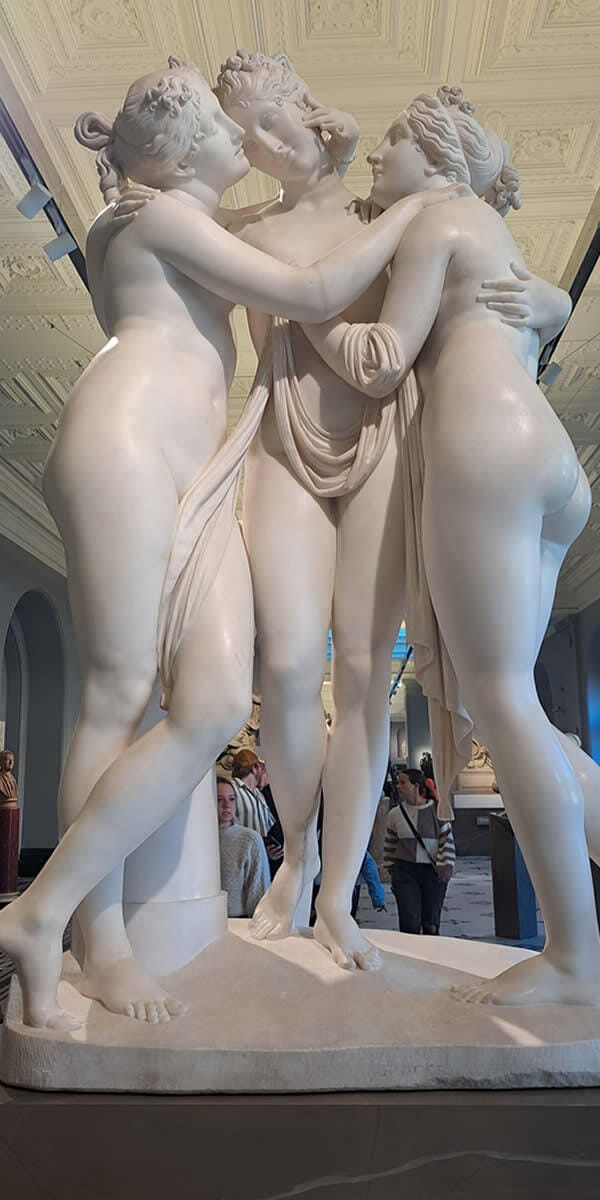What is Museum Design?
Museum design involves presenting information, art, and artefacts in a way that communicates, educates, influences, and enthrals visitors and scholars alike.
Museum designers use techniques such as lighting, layout, and signage to create an immersive experience that encourages curiosity and enhances learning. The aim is to create exhibits that are inclusive, informative, and above all, inspiring.

What goes into designing a museum?
Museum design involves a range of ingredients essential to creating a successful museum experience. The list below embraces 50 fundamental components that should not be forgotten when designing a museum.
-
- Project management
- Conceptual museum design
- Unique concepts and stories
- Spatial planning and museum layout
- Budgeting and cost-controlling
- Museum lighting design
- Climate control and ecological systems
- Great exhibition design and installation
- Striking museum graphics and typography
- Effective signage and wayfinding
- Different museum zones to maintain visitor engagement
- Object preservation and conservation
- Conservation lighting and temperature control
- Object mounting
- Master planning
- Multi-media exhibition technologies
- Sensory elements, such as audio-visuals
- Telling a captivating narrative
- Museum interior design
- Flexible lighting fixtures for temporary exhibits
- Artefact curation and acquisition
- Interactive exhibition designs
- Museum workshops
- Universal accessibility and inclusion
- NLHF – National Lottery Heritage Fund
- Content development
- Interpretation design
- Educational program development
- Object and artefact labelling
- Museum branding and (digital) marketing
- AI in museums, such as virtual and AR experiences
- Museum showcases
- Stunning architecture that creates purpose, function and a welcoming museum space
- Visitor facilities such as restrooms and cafe
- Volunteer management
- Museum Apps
- Interactive museum displays
- Future-proofing and Budget forecasting
- Hand-on museum interactives
- Experiences museum staff and training
- Family-friendly environments
- Security implementation
- Clear comprehension of the museum’s goals
- Digital collection and database management
- Museum shop
- UV light level testing
- Sustainable design elements such as HVAC systems
- Community engagement and outreach programmes
- Visitor feedback, surveys and analysis
- Audio / AI tours and narration
Top 10 must-visit museums in the UK
Here is our top 10 must-visit museum list for 2024

Victoria and Albert Museum - The Three Graces by Antonio Canova
-
- The British Museum in London is a place that can enlighten a sense of wonder and awe in any visitor. With its extensive collection of over 8 million objects on display, it is a true treasure trove of history and culture. Spending a day exploring the exhibition galleries can be a truly enriching experience.
- The National History Museum in London is a fantastic research facility and a centre of scientific excellence. This collection of specimens and exhibitions provides a one-of-a-kind opportunity to explore the natural world and learn about our planet’s past.
- The Science Museum in London is a fantastic place to explore and learn about science and technology. So many interactive exhibits and displays make the experience engaging and entertaining for visitors of all ages. It’s a fantastic destination for families looking for a fun and educational day out.
- The V&A— Victoria and Albert Museum in London has approximately 150 galleries to explore. It also showcases one of the most renowned 19th-century sculptures: ‘Three Graces’ by Antonio Canova (see photo above).
- The National Gallery in London is another fantastic museum that should be on your must-visit museum list. Once you step into the gallery, you’ll be awestruck by the beauty of the world-renowned Vincent Van Gogh’s sunflowers, exhibited in room 43. It’s a true masterpiece that will leave you feeling inspired and uplifted.
- Tate Modern in London is well-known for its inspirational and iconic art galleries. Visitors will be captivated and engaged by the museum’s vast collection of artworks. Because of the museum’s significant impact on the art world, it is a popular visit for art lovers and professionals.
- The Ashmolean Museum in Oxford is the world’s first university museum. Here you can explore the iconic artworks of Leonardo da Vinci, Pablo Picasso, and Michelangelo, to name a few.
- The Burrell Collection in Glasgow is an art museum with a comprehensive collection of paintings, sculptures, and tapestries. The museum, which opened in 1983, houses Sir William Burrell’s collection.
- The Fitzwilliam Museum in Cambridge is a world-renowned art museum with an extraordinary collection of art and artefacts worldwide. The museum’s collection comprises works of art from ancient Egypt, Rome, and Greece, as well as paintings and drawings from the Renaissance to the present.
- The Wallace Collection in London showcases an invaluable collection of art and antiques accumulated over centuries. The Wallace Collection is a true gem of London, and although it is last on our list, it is certainly not to be missed.
author: Tamara De Schepper
